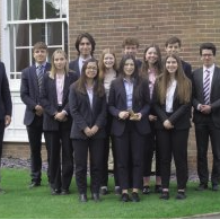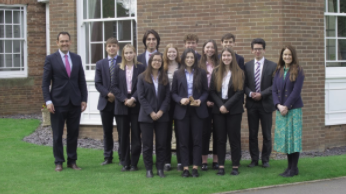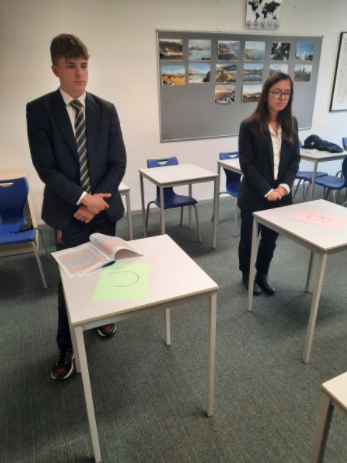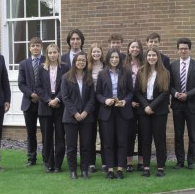Shrewsbury
Salopians 'hold their own' in mock trial against Westminster School


Mrs Corcoran reflects on the impressive show from the Mock Trial.
Lower Sixth Form students participated in the Independent School’s Mock Trial Competition against Westminster School last week, a trial spanning over two days.
The Salopians involved performed so well, the Headmaster congratulated the group for their efforts.
You can read a pupil's reflection on the Mock Trial here.

A trial can be described as ‘part dance and part fight, undertaken by parties who don’t want to be there on the day’. Who would step up for this challenge?
When I assembled our team, I was bowled over by the variety of personalities present at our inaugural meet. The exciting element of the Independent Schools’ Mock Trial Competition is that there is a wide range of roles from barrister to clerk, usher, juror or witness. This means plenty of room for the die-hard, aspiring lawyers but also roles for children who wouldn’t put public-speaking, debating and acting at the top of their forté list. One student wanted to be journalist and thought being a barrister would help her questioning skills, I cast her as a witness so that she could see what cross-examinations and examinations-in-chief are like from the other side of the fence. The latter are always hardest. One student declared himself to simply enjoy anything competitive – he was the perfect defendant: cool, calm, composed, convincing - and another tended to always participate in sport and wanted to try something different during his time at school. Being relatively new to Shrewsbury, I was impressed by how good Salopians are at self-reflection. The team were a diverse cross-section of individuals; we were in it to win it but we also aimed for a memorable and meaningful school experience.

The trial featured a criminal damage offence and culpability turned on whether or not there was a lawful excuse for the damage and if the action taken was reasonable and proportionate: a complicated case masquerading as a simple one. As with so many events this year, the competition became a zoom-based project rather than the chance to enjoy a prestigious courtroom. What we lost in terms of the majesty of justice, we gained in convenience. Zoom came into its own when our prosecution barristers were respectively stuck overseas and suffered a broken collarbone, 24 hours before the event. Both still took part, both from home and one with a sling in a seated position.
We were pitched against Westminster School – formidable and ambitious opponents. We held our own and in the event the verdicts and feedback resulted in a tie. Westminster successfully prosecuted on the first day, we succeeded on the second. My stand-out moments were observing how independent the students can be and how well they worked as a team. I bobbed between two rooms and two zoom links and was delighted that when the pressure was on and the adrenalin flowing, the students flying solo manoeuvred themselves around the stands, witness box and dock in perfect sync whilst advocating, testifying and examining with aplomb. I was also pleased to hear instant, practical solutions from them when a connection froze and, as I leapt on the surface to hit reconnect, I heard the rest of the team simultaneously ushering a stricken witness to the neighbouring room to use the jurors’ link so as not to disrupt the cross-examination. This was teamwork.
The pupils learnt a lot about presenting evidence in a preferable way, the importance of credibility and how to amplify it, as well as how to hold their own in the face of aggressive and tactical questioning. Ultimately, we learnt that, like most things, trials are determined by human nature. The presiding barrister, who kindly and comprehensively gave each pupil personalised feedback, warned us that jurors need careful direction but must be given a comfortable space to make their own determinations, as no one likes being told what to do. Juries will often convict or acquit a defendant simply because they were ordered to do the opposite, a mistake made by many junior judges. In terms of useful life lessons on how to achieve a desired result, this was the takeaway message for us all, parents and teachers included!
Mrs Louisa Corcoran



















.jpg&command_2=resize&height_2=85)


